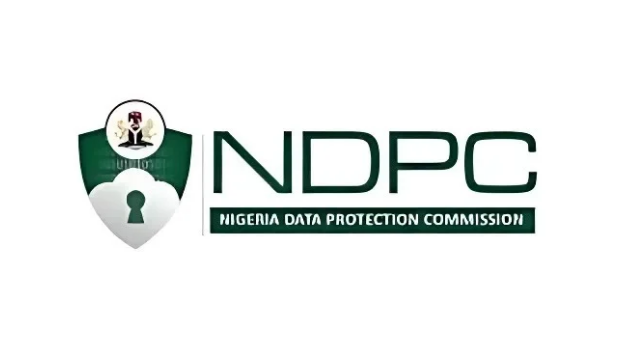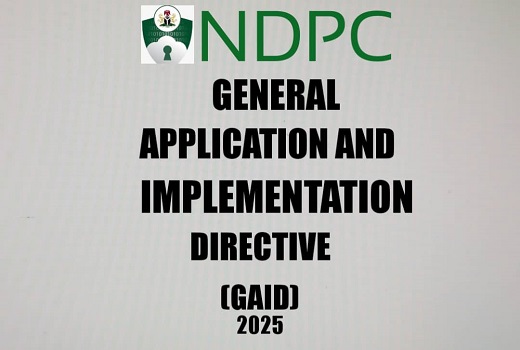In a landmark move marking its commitment to modern digital privacy, Nigeria is poised to overhaul its data protection framework through the much-anticipated General Application and Implementation Directive (GAID 2025). Issued by the Nigeria Data Protection Commission (NDPC) on March 20, 2025, GAID 2025 builds on the existing Nigeria Data Protection Act, 2023 (NDPA), and is scheduled to take effect on September 19, 2025 .

GAID 2025 arrives as a response to the growing importance of personal data in Africa’s largest economy, while also addressing gaps and ambiguities left open since the NDPA’s enactment and its predecessor, the NDPR 2019.
From Overlap to Clarity: GAID’s Legal Foundations
One of GAID’s most significant achievements is its clarification of Nigeria’s data protection legal hierarchy. Article 3 asserts that where GAID overlaps with other laws or regulations, the provisions of the NDPA prevail. This assertion reinforces that Nigeria’s data protection regime has a single, unified authority. The directive also formally withdraws the NDPR 2019 as a governing instrument , ensuring a smoother and more coherent legal landscape.
Wider Reach: GAID’s Expanded Scope
GAID 2025 expands the reach of Nigeria’s data protection laws far beyond its borders. Any organisation—whether domiciled in Nigeria or not—that collects, stores, or processes personal data of Nigerian citizens now falls under the NDPA’s jurisdiction. GAID even extends protections to the personal data of Nigerians abroad, individuals whose data was transferred into Nigeria, or data passing through the country. This broadened reach establishes a modern, GDPR-inspired data sovereignty framework.
Practical Compliance: GAID’s Detailed Obligations
While the NDPA introduced broad principles, GAID 2025 delivers granular, actionable guidance. Key directives include:
- Mandatory registration and compliance templates. Organisations classified as Data Controllers or Data Processors of Major Importance (DCPMI) must register with the NDPC, classify their data subjects, and file annual Compliance Audit Returns (CAR by March 31).
- Enhanced Data Protection Officer (DPO) credentials. DPOs must be certified and undergo Annual Credential Assessment; their credentials are tracked through a national NDPC database .
- Risk-driven Data Protection Impact Assessments (DPIAs). These are mandatory for activities involving profiling, new technologies, cross-border transfers, or sensitive data.
- Semi‑annual reporting and breach notifications. Organisations must maintain semi-annual internal privacy review reports and promptly report data breaches to both the NDPC and affected individuals .
- Standard Notice to Address Grievance (SNAG). This form empowers citizens to lodge complaints or request redress in user-friendly language.
These measures signal a move from aspirational ideals to enforceable obligations, positioning Nigeria among global frontrunners in data governance.

Streamlining Exemptions with Responsibility
GAID respects legitimate exemptions—such as law enforcement, national security, and humanitarian contexts—but explicitly bars exemption from core duties like data minimisation, lawful processing, breach notification, and the safeguarding of data subject rights . This balanced approach entrusts public and private actors with accountability, even in sensitive operations.
Cross‑Border Transfers: Still a Key Challenge
While GAID expands territorial protections, challenges remain. Experts note that enforcing Nigerian privacy norms on global platforms and litigating cross-border data disputes may prove difficult. Though GAID outlines legitimate lawful bases for data export—adequacy decisions or approved transfer contracts—it also emphasises that Nigeria’s judiciary and regulatory systems must build capacity in complex international data disputes.
Building Trust Through Accountability
For Nigerian businesses, GAID’s detailed framework may appear daunting, especially for startups working with lean teams. However, data protection experts highlight the commercial benefits of robust compliance: higher customer trust, reduced breach risk, and a stronger foundation for international partnerships. Leveraging licensed Data Protection Compliance Organisations (DPCOs) can ease initial burdens, allowing companies to focus on growth while building internal capacity.
Looking Ahead: Capacity and Culture

The NDPC isn’t stopping at regulation. GAID mandates active training and sensitisation across sectors, with plans for NDPC-led privacy academies and collaborations across government and private institutions. This long-term investment in privacy literacy reflects a strategic ambition: embedding data protection values into Nigeria’s economy and civic life.
Conclusion
With GAID 2025, Nigeria is reshaping its digital footprint. No longer confined to principles on paper, the country is equipping itself with rigorous standards, enforcement tools, and a progressive mindset, just as it becomes a magnet for tech investments. As GAID is implemented from September, its real impact will hinge on regulatory follow-through, judicial support, and the readiness of businesses and citizens to embrace a new era of data responsibility. For a nation at the crossroads of the digital revolution, GAID 2025 may prove to be a game‑changer.
Join Our Social Media Channels:
WhatsApp: NaijaEyes
Facebook: NaijaEyes
Twitter: NaijaEyes
Instagram: NaijaEyes
TikTok: NaijaEyes














![Mr Macaroni Drops Blistering Remark: ‘APC Filled with Most Corrupt People’ as He Slams Tinubu’s Controversial Pardon for Criminals=]] Mr Macaroni](https://naijaeyesblog.com/wp-content/uploads/2025/03/Mr-Macaroni-1-1-180x135.avif)

![Chaos Erupts in Abuja Hotel as BBNaija Star Phyna Sparks Fierce Scene Over Alleged N200,000 Dispute [VIDEO] Phyna](https://naijaeyesblog.com/wp-content/uploads/2024/11/A-Picture-of-Phyna-BBNaija-180x135.jpg)























